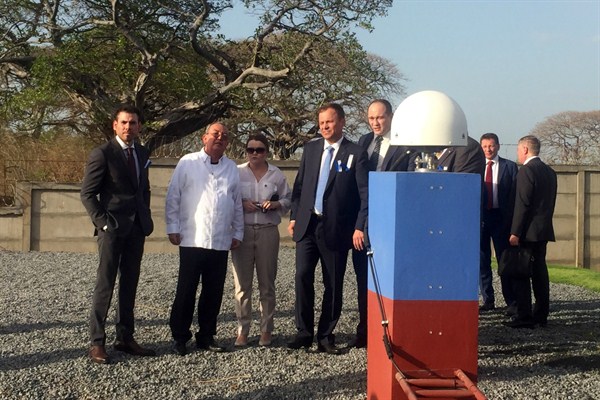On April 7, an unusual ceremony took place on the edge of a dormant volcano not far from the Nicaraguan capital, Managua. Nicaraguan officials joined Russian representatives for the formal opening of a new Russian satellite-tracking station, located barely 1,000 miles from the United States. Presiding over the ceremony was Laureano Ortega Murillo, a man grown powerful by virtue of his parentage. He is the son of Nicaraguan President Daniel Ortega and the president’s wife, Vice President Rosario Murillo.
The satellite facility, part of Russia’s Glonass network, a global navigation system in the mold of GPS, was given a name that reveals much about its significance. It is not a Spanish or Nicaraguan name, nor does it honor a Nicaraguan hero. Instead, the station was christened “Chaika,” the call name for Russia’s first woman in space.
That’s a sign that this is, above all, a Russian enclave, with very deliberate connections to a number of the fields of rivalry that once pitted Moscow and Washington against each other. Experts from the Russian space agency Roscosmos will operate the facility for the foreseeable future. But it’s not just the “space age” component that makes this a throwback to the Cold War days of competition between the U.S. and the Soviet Union. It’s also the facility’s location, not far from the U.S. coast.

